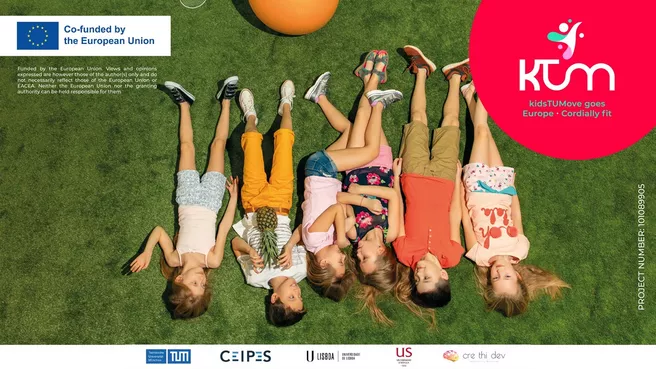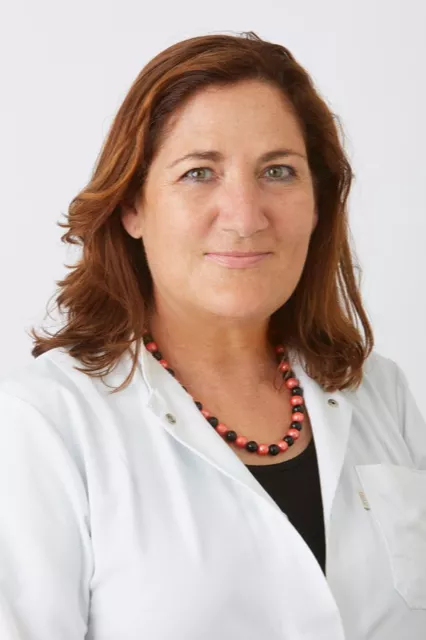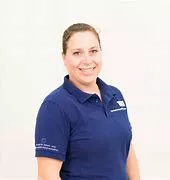Asthma, diabetes, epilepsy, and rheumatism are just four of the many diseases that can occur, especially in childhood and adolescence. Around one in six children in Germany suffers from one of these chronic illnesses, which can have a massive impact on the lives of adolescents. Pain, the use of medication, but also restrictions on physical activities can affect young people's everyday lives.
In their overview study, Dr. Christina Sitzberger and Dr. Nicola Stöcker (Operational Unit Applied Sports Science and Chair of Preventive Paediatrics, headed by Professor Renate Oberhoffer-Fritz) investigated the physical and psychosocial benefits that can be achieved by participating in sports for children and adolescents with chronic illnesses. The study entitled "Physical and Psychosocial Benefits of Sports Participation Among Children and Adolescents with Chronic Diseases: A Systematic Review" was published in the journal Sports Medicine and is available as an open-access article. The journal has an impact factor of 5.5.
The results of the project are to be evaluated and ultimately implemented as part of the Erasmus project "kidsTUMove goes Europe - cordially fit." The project aims to raise awareness of the importance of health-promoting physical activity for children with chronic illnesses and post-traumatic stress disorders. In addition to TUM, four other institutions such as universities and companies from Italy, Greece, Spain and Portugal are involved.
In the study, the two researchers wanted to determine which sports interventions are already available for children and young people and what effects these have on their physical, mental, and social well-being. The researchers examined 10,123 titles and abstracts, reviewed the full text of 622 data sets, and included 52 primary studies.
"The study's main aim was to identify the gaps in care for chronic diseases in adolescents. The review titles show that regular exercise can significantly improve the physical health and the psychosocial well-being of the young people concerned," explains Dr. Stöcker. "We examined what the literature offers, what standards are available, and, above all, where we currently stand with our program," says Dr. Sitzberger.
This revealed a heterogeneous field of different diseases, age groups, and sports recommendations. Long-term programs in particular, i.e. longitudinal studies, are lacking and are needed, explains Sitzberger: "For our program, it is important to start at a very young age, to convey the fun of sport and then go into aftercare in adulthood."
Standardized guidelines for the "kidsTUMove" project are now to be created from diverse and often heterogeneous information. One difficulty here is the usually differing procedures in the various countries, such as trainer licenses. "We want to define minimum criteria for when a coach is allowed to train chronically ill children and to what extent," explains Sitzberger: "And finally, every coach should be able to extract the individual components of the guidelines and then apply them to their training sessions."
"Ultimately, through the manuals, we aim to close the gap in providing health-promoting physical activities for children and young people with chronic illnesses. Adolescents should receive rehabilitative and preventative care, start doing sport, and thus be able to lead a healthy and long life," concludes Stöcker.
To the homepage of the Chair of Preventive Pediatrics
To the homepage of the Erasmus project "kidsTUMove goes Europe - welcome"
Contact:
Prof. Dr. Renate Oberhoffer-Fritz
Chair of Preventive Pediatrics
Georg-Brauchle-Ring 60/62
80992 Munich
Phone: 089 289 24601
E-mail: renate.oberhoffer(at)tum.de
Dr. Christina Sitzberger
Chair of Preventive Pediatrics
Operational Unit Applied Sports Science
Connollystr. 32
80809 Munich
E-Mail: christina.sitzberger(at)tum.de
Dr. Nicola Stöcker
Chair of Preventive Pediatrics
Operational Unit Applied Sports Science
Connollystr. 32
80809 Munich
Phone: 089 289 24678
E-mail: nicola.stoecker(at)tum.de
Text: Bastian Daneyko
Photos: private



